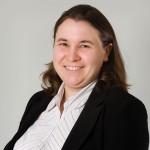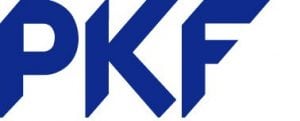Emily chose to join a small, local accountancy firm and just five years later she’s a fully ACA and CTA qualified Tax Manager.
Working in tax is not all about avoidance schemes and big corporations: it can also be about making a difference for small businesses. I work for a small accountancy firm in Cambridge, which provides accountancy and tax services for clients ranging from individuals to medium-sized companies.
The job is challenging and varied, as there is no way of knowing what question will come in next and I can be asked to advise on many different aspects of a client’s business and tax affairs.
How did you get your job at Lakin Rose?
Having decided against applying for jobs with ‘Big Four’ accountancy firms, I looked up local accountancy firms online. I sent my CV into Lakin Rose (as well as a few others) speculatively and was invited for interview as there happened to be space for a trainee at that time.
In terms of progressing to my current role, I was given the opportunity to specialise in tax and to complete the Chartered Tax Adviser (CTA) qualification after completing my qualification as a Chartered Accountant, because this was an area which I was interested in as well as being a way for the firm to provide additional expertise to clients.
What was the application process like – any advice?
My original application was purely speculative, and with it being a small firm (around 20 employees) the process was fairly informal. I had one interview with two of the four partners, who were particularly interested in my reasons for applying to this type of firm and my longer-term career ambitions (I had already considered that tax specialism might suit me because of my background in maths).
It is definitely very important to have thought about these aspects in advance of application and interview as you need to be able to convince the interviewer (not to mention yourself!) that you are committed to a career path which initially involves long hours of study and exams.
Why did you choose a job in the tax profession?
I became interested in accountancy, and tax in particular, while a post-graduate student, as my husband started a small company at this time.
I quickly realised that compliance with the legal requirements of a company was not easily undertaken as a lay-person and that we needed to hire the services of an accountant. This led to the realisation that small businesses and ‘normal’ individuals as well as large corporations and the very wealthy need accountants and tax advisers. I also realised that there is a great variety of areas where a small business relies on its accountant for help and advice. As a result, accountancy and tax became a potential career which I had not previously considered.
What are your main duties/roles?
Over the course of my training I have built up a portfolio of clients which I manage, each one overseen by a partner within the firm.
My portfolio consists of a mixture of personal tax clients, for whom I prepare tax returns and carry out various types of tax planning; small owner-managed companies, for which I prepare statutory accounts and corporate tax returns and may also assist with other things such as VAT returns; and, as I initially trained as an accountant, I also have some audit clients. In addition, I am often involved with the more complex tax requirements of other clients of the firm, so will research queries or discuss particular issues with colleagues.
What are the most stressful parts of the job?
The most stressful thing is always juggling deadlines and priorities – particularly at busy times of the year such as the run-up to the January tax return deadline. Sometimes it seems like everything is urgent!
What skills are useful in the tax profession?
Numeracy is obviously an important aspect of accountancy and tax, but probably less so than the ability to reason logically and work methodically. Interpersonal skills are also very important when working in a small firm as you have a lot of direct contact with clients and need to be able to communicate effectively. I was initially quite shy and nervous when speaking to clients, but have since found this to be a particularly enjoyable aspect of the job.
Is it a 9-5 job?
Sometimes! You need to be prepared for a lot of study early on, whether going through an accountancy route, or going directly into tax via ATT or other qualifications. As the study is on top of working full-time, this takes up a lot of evenings and weekends particularly in the run-up to exams.
I found that studying for CTA meant longer hours than ever before, as by that point I had much more responsibility for clients and a heavier workload. Now that the exams are out of the way there are times when it is necessary to work long hours and less busy times when the workload is more easily manageable.
Do you have any advice for anyone wanting to get into tax?
Make sure you are certain that you are willing to continue studying for another 3-4 years. Starting with a general accountancy qualification is probably the most flexible route into tax, and you get to see many aspects of the profession in the process, however there are many different routes and qualifications and it’s therefore definitely a good idea to research these and see what best suits you. The same thing is true of different types of firm – you will have a different experience working for a small accountancy firm compared with a medium or large firm or in industry.




